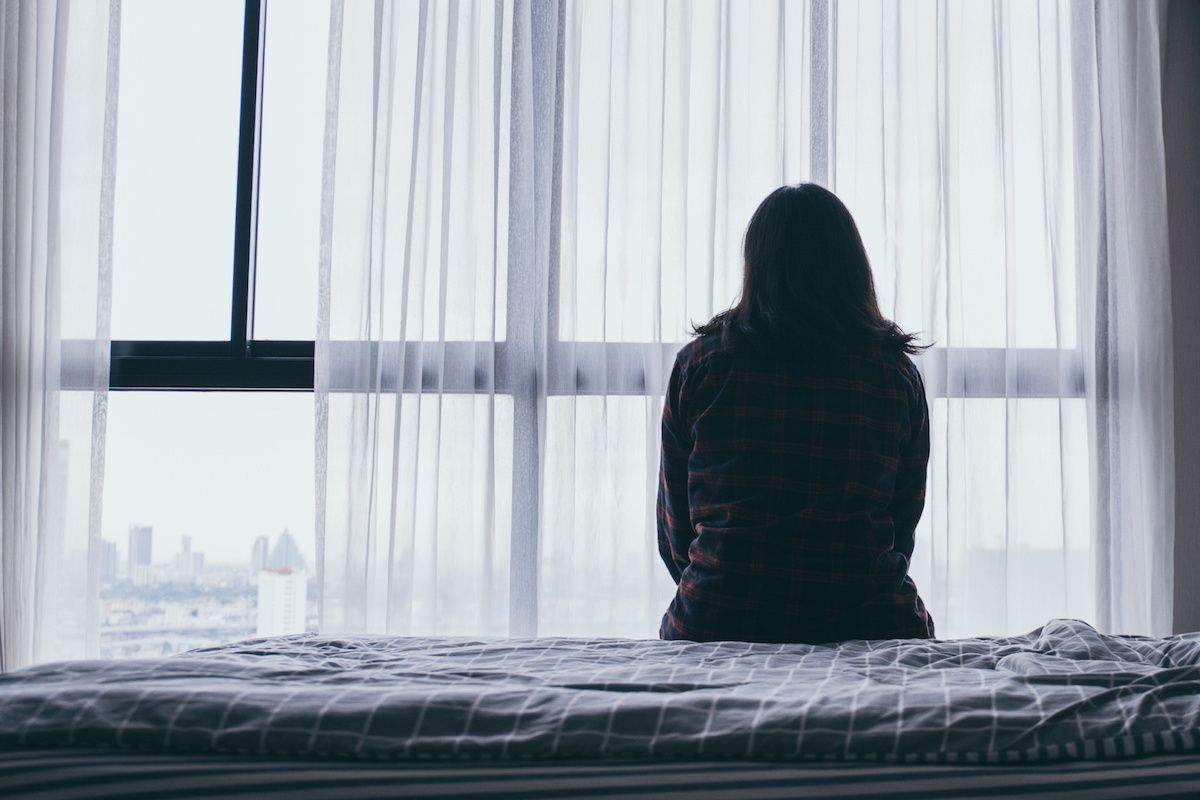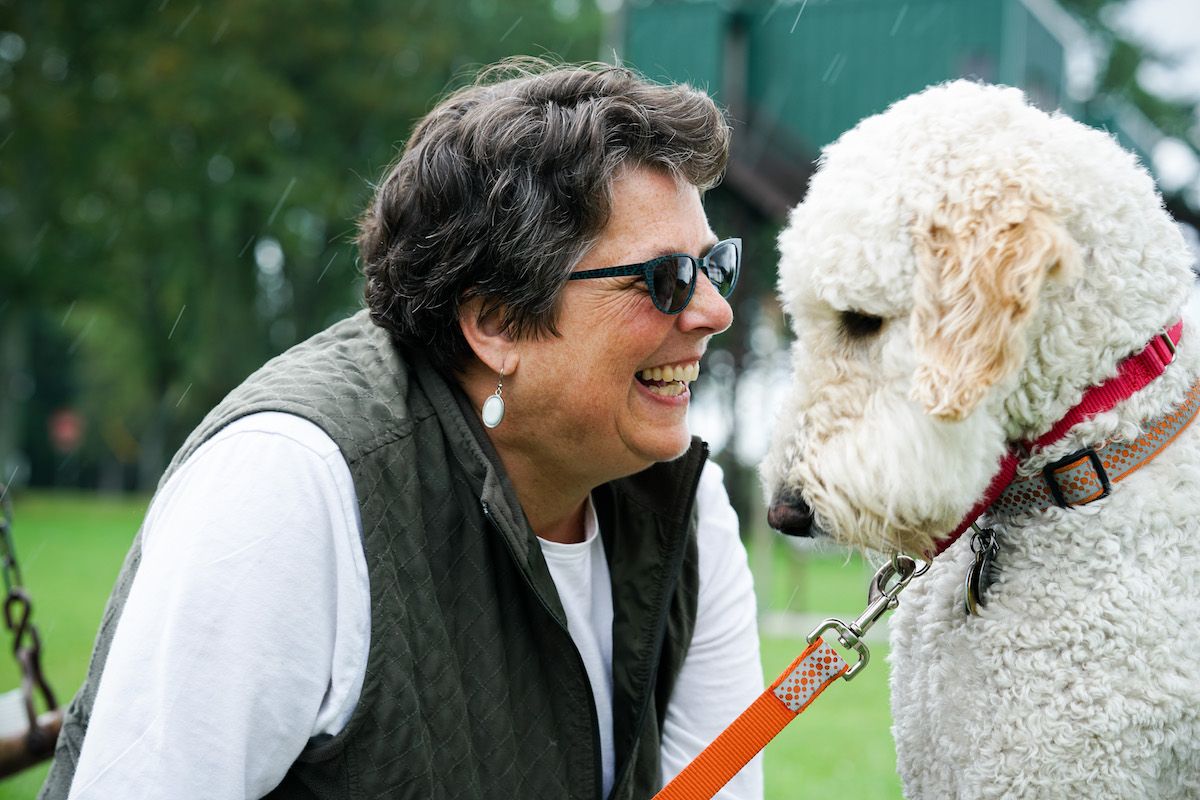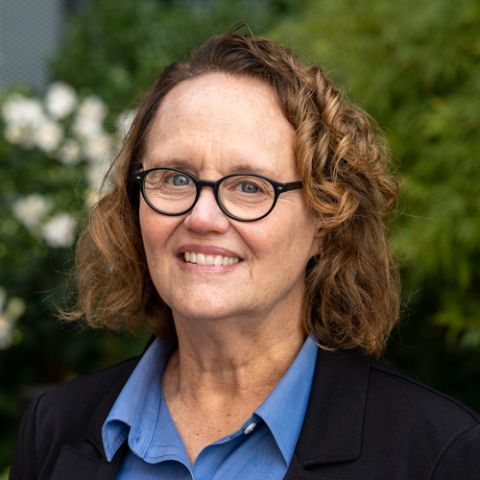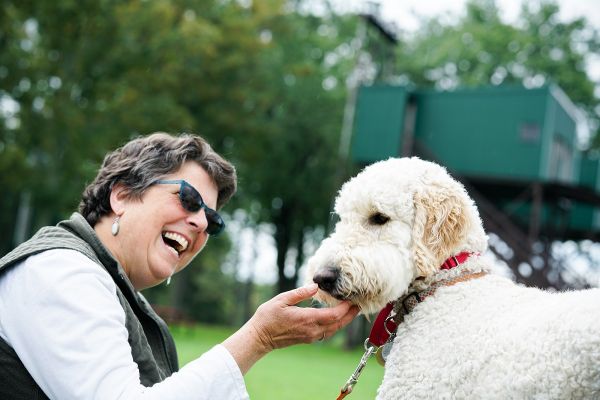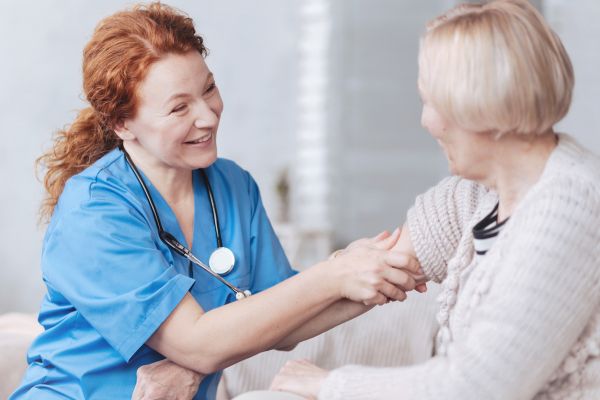A few weeks before my last chemotherapy session, one of my nurses mentioned that “Sometimes, cancer patients feel depressed after they finish treatment.”
“What?” I thought to myself. The day I finished four months of grueling weekly treatments, I couldn’t have been happier. I was now officially a cancer survivor!
But soon after, my nurse’s comment started to ring true.
While I was grateful for my survivorship and my prognosis seemed good, I had this odd sense of being adrift and alone, and feeling anxious. Though I had contact with family and friends, just like that, the delivered meals and offers of assistance, and the reassuring and caring treatment from my doctors and nurses each week…Poof! It all seemed instantly gone. But what wasn’t gone? The fatigue, brain fog, weight gain, neuropathy; the fear caused by every new ache and pain; the anxiety before every scan and blood test. I started to wonder if I would ever feel “normal” again.
My story was not surprising to Mary Reid, MSPH, PhD, Roswell Park’s Director of Cancer Screening and Survivorship, and medical psychologist Jennifer Hydeman, PhD, formerly of Roswell Park. “I have patients who tell me, ‘I survived treatment, but I feel like I’m struggling to do survivorship right. I feel completely lost now,’” says Dr. Hydeman.
“Feeling anxious or depressed after completing cancer treatment is more common than people might think,” adds Dr. Reid. “Several well regarded studies confirm that approximately 18 to 20% of adult cancer survivors report symptoms of anxiety and depression at some point during the first 12 months after treatment. And that number is as high as 28% for adolescent and young adult (usually defined as between the ages of 15-39) cancer patients.
“While post-treatment anxiety and depression can occur with any type of cancer, it has been more frequently studied in patients who were treated for breast cancer, lung cancer, pancreatic cancer, thyroid and other head and neck cancers, prostate cancer and melanoma.”
For many people, including me, post-cancer anxiety and depression fade with time and readjustment. “But for those who need some extra help, Roswell Park has targeted resources to both recognize and treat anxiety and depression in cancer patients at all stages of their cancer journey,” says Dr. Hydeman.
Risk factors for post-cancer depression
Any patient can experience post-cancer mental health distress, but certain factors may increase the risk. These include:
- A sense of abandonment or isolation after treatment is over
- Fear of cancer recurrence, especially within the first two years of survivorship
- Lingering physical, mental or emotional changes due to cancer and its treatment, including sexual dysfunction, loss of fertility, hormonal changes, foggy memory, physical weakness, adjustments to body changes caused by surgery or treatment, physical pain, poor prognosis for long-term survival, emotions about having a body part removed, and trauma from treatment
- Financial stress
- Changes in family dynamics during and after cancer treatment
- A prior history of depression
- Feelings of guilt for surviving cancer when others have not, called “survivor’s guilt”
Symptoms of post-cancer distress
The types of mental distress that many patients feel usually fall into one of several different clinical categories. These include:
Demoralization
This is considered a lower level, non-pathologic reaction to stress. Demoralization describes feeling dispirited or discouraged. Patients may experience this as a loss of meaning or purpose in life after their diagnosis or treatment.
Anxiety
This is a more heightened response. Anxiety describes worry that is difficult to control and impairs function. Anxiety includes at least three of the following symptoms most of the time over six months:
- Restlessness or feeling keyed up or on edge
- Being easily fatigued
- Difficulty concentrating
- Irritability
- Muscle tension
- Sleep disruptions
Depression
A clinical diagnosis of major depression requires experiencing at least five of the following symptoms most of the time over two weeks:
- Ongoing sad, hopeless or “empty” mood almost every day for most of the day
- Loss of interest or pleasure in activities that once were enjoyed
- Major weight loss (when not dieting) or weight gain
- Sleep changes (can’t sleep, early waking or oversleeping)
- Extreme tiredness or less energy almost every day
- Other people notice that you’re restless or “slowed down” almost every day
- Feelings of guilt, worthlessness and helplessness
- Trouble focusing, remembering or making decisions
- Frequent thoughts of death or suicide or attempts at suicide
- Wide mood swings from depression to periods of agitation and high energy
Post-traumatic stress
This includes post-traumatic stress syndrome (PTSS) and the more acute post-traumatic stress disorder (PTSD) and affects one in five cancer patients within six months of diagnosis. In some patients, the symptoms linger or grow worse in the years ahead.
Signs of PTSS and PTSD include irritability, difficulty in controlling emotions, trouble sleeping, and panic or anxiety attacks, often provoked by various triggers. For cancer survivors, these triggers may include events such as anniversaries of a cancer diagnosis or surgery, certain smells or sounds associated with treatment, and news of other friends and loved ones being diagnosed with cancer.
Help for post-cancer depression
For me, getting back on my feet was just a matter of time as the side effects of my surgery and chemotherapy diminished, my cancer tests showed complete remission over the years, and I learned to adjust my coping mechanisms to my “new normal.” That included giving myself permission to take naps when I needed them; getting medical help to deal with debilitating pain from ongoing neuropathy; exercising and going to the gym on a regular basis; and getting a dog, who always provides unconditional love and acceptance.
“People have a wealth of ways that provide support and joy in their lives, including religious and spiritual experiences, hobbies, social networking, relaxation techniques, and exercise,” says Dr. Reid. “But for those who want or need more help to address their anxiety or depression at any stage of their cancer journey, Roswell Park has a full range of resources.”
Dr. Hydeman adds “During and after cancer treatment, care team members may encourage patients to meet with one of our Roswell Park psychologists to help address cancer-related mental health issues. Patients also may ask any member of their care team to refer them for an appointment with our psychologists.”
Dr. Reid also points out there are many physical and mental health resources available to patients – and their caregivers – at Roswell Park’s Survivorship and Supportive Care Center.
Let Us Help You
Roswell Park's Survivorship Program brings together many of our clinical and supportive services, as you face forward and learn to embrace a new normal.
Learn More“When people are done with their treatment, we encourage them to make at least one appointment in the Survivorship and Supportive Care Center, so we can create a plan for them,” says Dr. Reid. “At their initial post-treatment visit, patients receive a complete physical, including depression screenings, a comprehensive survivorship care plan and an introduction to our many services, seminars and cancer support programs to help them manage emotional, physical and spiritual care as they move beyond treatment.”
Support services, both during and after treatment, include acupuncture, on-staff psychologists and psychiatric referrals, assistance with legal and financial aid, massage therapy, men’s and women’s sexual health clinics, mindfulness and meditation classes, nutritionists, physical and occupational therapy, palliative and pain control services, Reiki healing touch sessions, spiritual care, and yoga, to name a few. (Many of these services and workshops are also available via video.) Roswell Park also hosts several cancer-specific and age specific support groups and workshops.
“The important thing to remember is that depression after cancer is common, it is not something be ashamed of, and at Roswell Park, we have resources to help,” says Dr. Reid.
Editor’s Note: Cancer patient outcomes and experiences may vary, even for those with the same type of cancer. An individual patient’s story should not be used as a prediction of how another patient will respond to treatment. Roswell Park is transparent about the survival rates of our patients as compared to national standards, and provides this information, when available, within the cancer type sections of this website.
